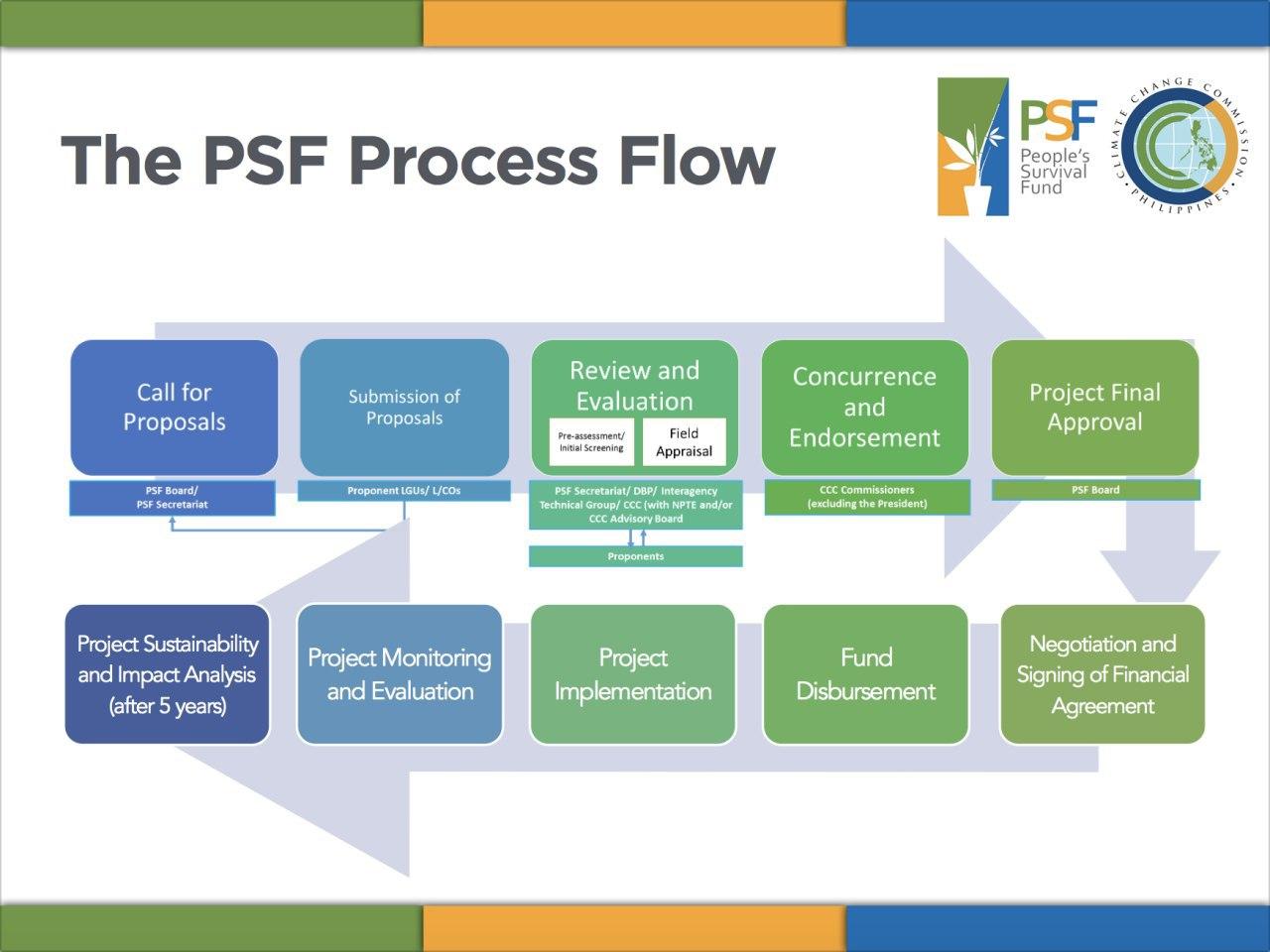
December 20, 2020 Sunday

MANILA, 21 December 2020 — To further provide capacity building on accessing the People’s Survival Fund (PSF), the Climate Change Commission conducted a virtual PSF Clinic on 18 December 2020 for planning and investment officers from 61 local governments across the country.
Speakers during the PSF Clinic included Dr. Antonio L. Fernandez, Senior Technical Expert of CCC, Dr. Felino P. Lansigan, Professor Emeritus of Statistics and Environmental Science at the University of the Philippines-Los Baños and member of the National Panel of Technical Experts (NPTE), and Ms. Jean Paula Regulano, Development Management Officer of the CCC-PSF Unit, to share knowledge on how to develop adaptation projects for funding under the PSF.
Dr. Fernandez shared climate change impacts and adaptation interventions related to infrastructure, based on anticipatory planning for building new structures, or maintaining those existing, so that they are resilient to climate impacts.
“As you go through the process of trying to understand what kind of proposals you want to submit, you have to look at it from the strategy, the preparedness of your system alone, the commitment of your local government officials, [and if] people are also welcoming of the idea,” said Dr. Fernandez.
Dr. Lansigan discussed innovative adaptation measures in climate risk management in agriculture, which include Adaptive Planting Calendar, and Weather Index-Based Crop Insurance (WIBI).
“The PSF calls for the implementation of innovative measures which can be explored in collaboration with other stakeholders in the community, province, or region. This also involves collaboration among the LGUs, the academe, particularly state universities and colleges across your area, national government agencies, and non-government organizations operating in your community,” said Dr. Lansigan.
Ms. Regulano tackled population dynamics as multipliers of climate vulnerability, which meant that local demography must be understood well.
“When you revisit your plans, or you intend to enhance and implement it, we need to also consider the needs of our population in consideration of our perceived impacts of climate change. We can start by getting away with some of the business-as-usual tricks such as perspectives in vulnerability that are superficial, overly general, and deterministic; the ‘impact-first’ approach that you have to wait for something to happen before you act on it; and the static perspective in the inputs of vulnerability. Your factors of vulnerability are not constant, it’s consistently evolving, same as how climate change, temperature, rainfall, or stimulus is evolving more rapidly,” said Regulano.
The PSF Clinic aims to expand the coverage and reach to localities that are unable to access capacity building workshops and/or seminars on PSF due to the current pandemic. It also addresses misconceptions, provides clarifications, and bridge gaps in the data or information needed to understand climate and disaster risks and vulnerabilities; programs, projects, and activities that can be proposed for PSF funding; reference documents that maybe submitted to justify the proposed climate change adaptation intervention; and project proposal development.
“We hope that this undertaking will foster a fruitful partnership with your localities and organizations, and establish channels of support and communication. As the world faces the catastrophic impacts of climate change alongside COVID-19, it is high time that we put forth timely climate actions on the ground, enabling us to recuperate and rebuild with a resilient future in mind,” said Assistant Secretary Romell Antonio O. Cuenca, CCC Deputy Executive Director and Head of the PSF Unit.